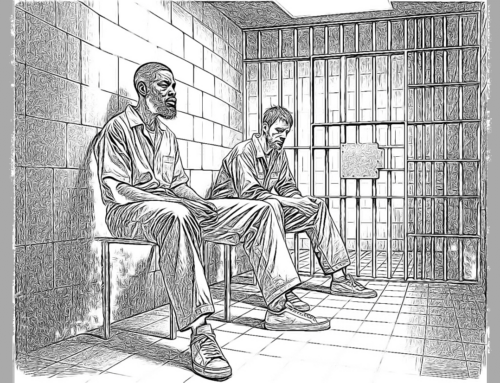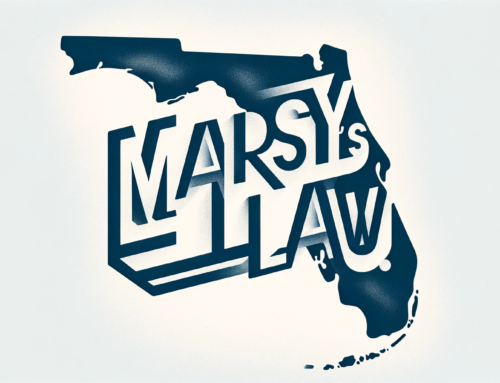Florida’s Governor, Ron DeSantis, is once again improperly interfering in local affairs by removing a duly elected prosecutor from office. As reported in depth by the Brennan Center for Justice’s recent analysis, DeSantis suspended Orlando-area State Attorney Monique Worrell last week, baselessly alleging she has been “derelict” and “incompetent” in her elected role (“DeSantis’s Suspension of Orlando-Area Prosecutor Is Counterproductive Justice Policy”).
The governor took issue with Worrell’s use of prosecutorial discretion to avoid unnecessarily harsh charges and sentences in certain types of cases. However, the governor’s actions reflect a fundamental misunderstanding of the prosecutor’s proper role, ignore mounds of evidence on effective public safety policies, and show dangerous disrespect for democracy.
As a criminal defense attorney practicing in Florida myself, I have seen first-hand the injustice caused by overly punitive policies. Prosecutors like Worrell, who use their discretion to implement more balanced approaches, are needed now more than ever. DeSantis’s removal of Worrell suppresses the will of voters and worsens justice outcomes.
The Governor vs. the People’s Will
Worrell, who was elected in 2020, had wide community support for her agenda of focusing resources on what actually prevents crime rather than defaulting to maximum punishment. The governor is undoubtedly infringing on democracy by removing a prosecutor enacting the very reforms she promised voters during her campaign.
A federal court already found DeSantis violated the state constitution and First Amendment when he previously suspended reform-minded Tampa prosecutor Andrew Warren. The Brennan Center points out that removing Worrell so soon after this rebuke is even more disturbing.
These attacks on Worrell, Warren, and similar prosecutors across the country are transparent attempts to undermine reformers responding to constituents’ calls for more effective public safety policies. They aim to replace community preferences with the governance whims of state Republican officials. This is an affront to the basic principles of representative democracy.
The Prosecutor’s Proper Role
DeSantis alleges Worrell neglected her duty by avoiding severe charges in too many cases, like those involving youth or drugs. However, he fundamentally misunderstands the prosecutorial function.
The American Bar Association explains that prosecutors should use balanced judgment to promote public safety through fair exercise of discretion over charging and plea bargains. They should only leverage the justice system when appropriate, not reflexively pursue the harshest charges or sentences allowed.
Voters elected Worrell to do exactly that – prioritize crime prevention programs and only utilize incarceration when truly necessary to protect the public. DeSantis simply disagrees with Worrell’s judgment calls, which is no basis for removal according to the court’s ruling on Warren’s suspension.
The Governor vs. the Evidence
Beyond improper interference in local affairs, the governor’s actions also demonstrate ignorance of volumes of research on effective justice policies. His order focuses criticism on Worrell avoiding mandatory minimums and long sentences for young people.
However, studies show such mandatory and lengthy prison terms have not improved public safety over judicial discretion in sentencing. In fact, a recent poll found 69% of voters want to eliminate mandatory minimum laws requiring long incarceration.
The evidence also supports Worrell’s approach to juvenile cases. Research confirms brain development continues until around age 25, so young people’s decision-making is not fully mature until then. Many studies also show criminal activity naturally declines with age – the older someone gets, the less likely they are to re-offend.
These findings led the U.S. Supreme Court to ban mandatory life-without-parole sentences for juveniles convicted of non-homicides. The Court recognized the importance of giving young people the chance to gain “maturity of judgment.”
In contrast to Worrell’s evidence-based policies, the governor’s views perpetuate failed “tough on crime” stances. America’s mass incarceration crisis has not improved safety. Diversion programs, mental health and drug treatment, re-entry support, and crime victim resources are smarter investments.
The Governor vs. Justice
Beyond worsened public safety outcomes, DeSantis’s suppression of reformist prosecutors like Worrell will deepen systemic inequities. Racial minorities bear the brunt of punitive policies; for example, Black Americans are incarcerated in state prisons at nearly five times the rate of white Americans.
Overly aggressive prosecution and sentencing also exacerbate the wider societal harms of mass criminalization. Today, 70 million Americans have records facing lifelong barriers to voting, employment, housing, and public benefits.
Prosecutors like Worrell strive to prevent crime and reduce excessive punitiveness simultaneously. The governor’s removals directly obstruct these goals and worsen justice harms.
Defending Justice
As a criminal defense lawyer, I see the injustice of current policies daily. Draconian mandatory minimum statutes and extreme sentencing practices destroy lives, families, and communities without meaningfully deterring crime.
Prosecutors willing to use their discretion to avoid unnecessary criminalization deserve praise, not removal. Reformers like State Attorney Worrell are fulfilling their democratic mandates by responding to their constituents’ calls for balancing public safety and fairness in the justice system.
DeSantis’s suppression of Worrell and prosecutors like her will inflict damage on justice and public safety in Florida. I will continue advocating to defend prosecutorial independence and the role of discretion in achieving genuine justice. Prosecutors across the country implementing reforms in line with public preferences and evidence should take heart – despite these political attacks, many recognize the value of your work.









